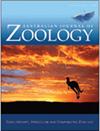小红狐(Pteropus scapulatus)在昆士兰营地生境的偏好
IF 1
4区 生物学
Q3 ZOOLOGY
引用次数: 3
摘要
. 城市飞狐营地是人类与野生动物冲突的主要来源,产生噪音、气味、植被破坏、财产损失和疾病担忧。尽管许多社区对驱散蝙蝠营地有很大的迫切需求,但关于如何有效地进行这种驱散的信息有限。确定狐蝠在选择营地时使用的栖息地特征是理解它们为什么在那里建立营地以及它们分散后可能迁移到哪里的关键。本文对小红狐(LRFF)栖息地进行了两个空间尺度的特征分析:局地尺度的植被结构和气候景观特征。我们发现,与局地尺度的乔灌木高度和覆盖度的相关性较弱,与标准化植被差异指数(一种“绿化率”的度量)的增加和到最近水道的距离的减小有较强的相关性。这些关系不足以解释模型中的所有变化,这表明还有其他因素,如社会线索,也可能影响营地的选择。我们的研究结果表明,对现有或拟建营地的轻微修改不太可能排斥或吸引lrff,因为其他因素可能在该物种营地的形成中起关键作用。本文章由计算机程序翻译,如有差异,请以英文原文为准。
Camp site habitat preferences of the little red flying-fox (Pteropus scapulatus) in Queensland
. Urban fl ying-fox camps are a major source of human – wildlife con fl ict, producing noise, odour, vegetation damage, property damage, and concerns about disease. Although there is a signi fi cant demand in many communities for bat camps to be dispersed, there is limited information on how such dispersal can be conducted effectively. Determining the habitat characteristics fl ying-foxes use when selecting a camp site is key to understanding why they establish camps where they do and to where they might move if dispersed. We characterised little red fl ying-fox (LRFF) camp habitat at two spatial scales: fl oristics and vegetation structure at the local scale, and climatic and landscape characteristics at the broad scale. We found weak associations with local-scale tree and shrub height and cover, and stronger associations with increased Normalised Difference Vegetation Index (a measure of ‘ greenness ’ ) and decreased distance to nearest watercourse. These relationships were not strong enough to explain all variation in the model, suggesting that there are other factors, such as social cues, that could also in fl uence camp site selection. Our results suggest that minor modi fi cations to existing or proposed camp sites will be unlikely to repel or attract LRFFs, as other factors are likely to play key roles in the formation of camp sites for this species.
求助全文
通过发布文献求助,成功后即可免费获取论文全文。
去求助
来源期刊
CiteScore
2.40
自引率
0.00%
发文量
12
审稿时长
>12 weeks
期刊介绍:
Australian Journal of Zoology is an international journal publishing contributions on evolutionary, molecular and comparative zoology. The journal focuses on Australasian fauna but also includes high-quality research from any region that has broader practical or theoretical relevance or that demonstrates a conceptual advance to any aspect of zoology. Subject areas include, but are not limited to: anatomy, physiology, molecular biology, genetics, reproductive biology, developmental biology, parasitology, morphology, behaviour, ecology, zoogeography, systematics and evolution.
Australian Journal of Zoology is a valuable resource for professional zoologists, research scientists, resource managers, environmental consultants, students and amateurs interested in any aspect of the scientific study of animals.
Australian Journal of Zoology is published with the endorsement of the Commonwealth Scientific and Industrial Research Organisation (CSIRO) and the Australian Academy of Science.

 求助内容:
求助内容: 应助结果提醒方式:
应助结果提醒方式:


